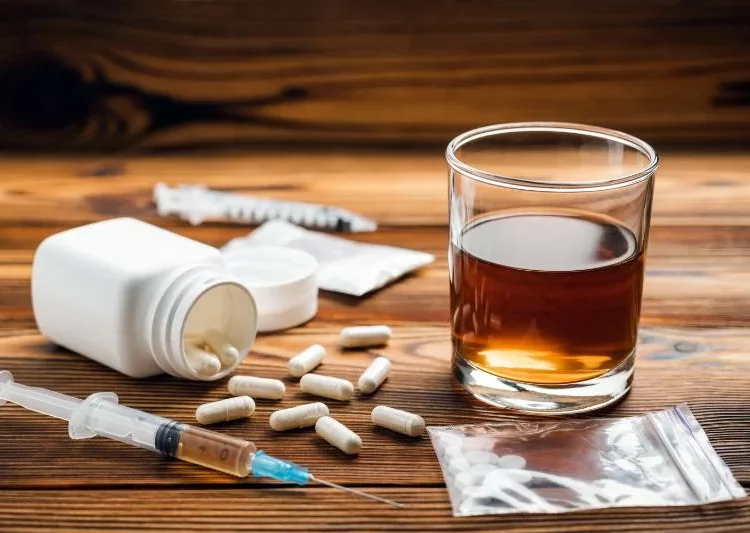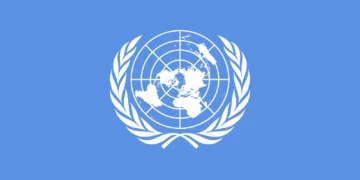Recently, the Nigeria Customs Service (NCS), Tincan Island Command, announced that it intercepted, between May 17 and October 23, 2024, 16 containers of illicit substances, unregistered pharmaceutical products, and other items discharged with a duty-paid value of N4bn.
Giving details of the seizures, the Customs Area Controller in charge of the command, Dera Nnadi, explained that some of the containers were carrying numerous shipments of cough syrups with codeine, barcadin, broncleer, and DSP for throat and chesty cough packaged in 100ml, 200ml bottles per carton.
Others contained 420 cartons of Royal 225 (Tapentadol HVCL 125mg and Carisoprodol BP 100mg), 200 cartons of 5mg Benzhexol Tablets (Brand: Trodal, 77 packets of cannabis sativa weighing 38.5kg, 532 packets weighing 265.025kg, and 75 packets weighing 37.5kg, Really Extra brand packed in 50mg, 100 packs per carton.
We recall that in 2018, the United Nations Office on Drug and Crime in Nigeria (UNODC) indicated in its drug use survey that 14.4 per cent (14.3 million) of Nigerians are involved in drug abuse. Still, sadly, six years later, the figure has remained static and, perhaps, will increase if a new survey is conducted.
This is even as the National Drug Law Enforcement Agency (NDLEA) said in October 2024 that the agency seized 761,000 tonnes of illicit drugs and substances between January 2021 and March 2024.
According to it, the 14.3 million Nigerian drug abusers are within the age range of 15 to 64 years, adding that more women are now getting involved.
This newspaper is worried over the alarming trend of the involvement of women in drug abuse in the country. The report by the agency claims that one in every four drug abuse cases is a woman. Unfortunately, there is a huge gap in the availability and accessibility of drug treatment services in the country.
For us, this has so many implications if more women are going into drug use because it means that the traditional role of women in families and communities as caregivers, role models, and live moulders will be threatened, raising questions about the quality of children these women are going to bring up.
In the 2018 report, the UNODC explained that Nigeria transformed from a mere transit country for drug trafficking to a major consumer and even producer of illicit substances.
It stated that the nation started by being a transit country, consuming maybe cannabis, alcohol, and all of that, then it graduated to heroin and cocaine, but today, regrettably, Nigeria is not just transit; it is a huge consumer, and it is not just cultivator of cannabis, it is now producing drugs, such as methamphetamine, which is highly addictive and very potent.
Aside from this, this newspaper is aware of the fact that many of these drug abusers also indulge in household substances like methylated spirit, glue, nail polish, paint thinner, fermented urine, and even the heads of matches, as these contribute to the complexity of the drug abuse issue.
This is not helped by the fact that young people are getting creative and innovative in finding new ways to get ‘high’.
The Executive Director of UNODC, Ghada Waly, said that drug production, trafficking, and use continue to exacerbate instability and inequality while causing untold harm to people’s health, safety and well-being.
The use of these drugs may cause blackouts, poisoning, overdose and death; physical and psychological dependence; damage to vital organs such as the brain, heart, and liver; inability to learn and remember information; and psychological problems including depression, psychosis, and severe anxiety.
On its part, the National Agency for Food and Drug Administration and Control (NAFDAC) has described the drug abuse situation in the country as very alarming,
We recognise the efforts of the northern governors’ wives in their advocacy efforts over the years to draw attention to the dangers of the menace of drug abuse, arising from the survey that an estimated annual prevalence of drug users in the North-East zone is 13.6 per cent, which translates to over two million users.
The survey indicated that Gombe State alone has a 21 per cent prevalence, higher than the national average.
In the opinion of this newspaper, the challenge of drug abuse has become a growing public health concern, and the severity of the situation is a reminder that we all have roles to play.
Hence, the fight against the menace needs all stakeholders’ efforts to achieve meaningful success and rid the country of illicit drugs.
As the chairman of the NDLEA, Brig.-Gen. Buba Marwa (retd) said the prioritisation of treatment using rehabilitation centres is symbolic of the collective resolve to confront the scourge of addiction with compassion and humanity.
We need to get society to take ownership of the anti-drug abuse initiative because, with a sense of shared responsibility among citizens, every effort would quickly yield the desired results.





